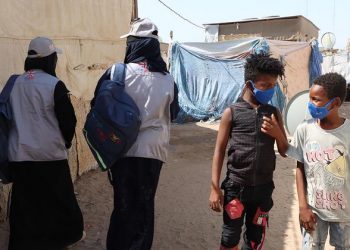The move came following a recommendation from UN Secretary-General António Guterres to Member States, on February 29, to amend the format of the 64th session of the conference, which was originally due to last several days (March 9 to March 20), and would have welcomed representatives of Member States, UN entities and non-governmental organizations from around the world.
On Monday, the commission decided to limit the event to a procedural meeting on March 9, including opening statements – from the chairperson, Mher Margaryan, Mr. Guterres, the President of the General Assembly and several other high-level UN officials – followed by the adoption of a political declaration, and action on any other draft resolutions.
The event will then be suspended until further notice: no general debate will take place, and the planned side events will be cancelled. Member States will be represented by their New York-based Permanent Missions to the UN.
In a letter sent to all UN ambassadors on Monday, Ms. Margaryan reiterated the Secretary-General’s strong recommendation that delegations and other stakeholders should refrain from travelling to UN Headquarters in New York.
Regarding a potential resumption of the Commission later in the year, the Secretary-General’s spokesperson, Stéphane Dujarric, briefed reporters on Tuesday that this would be a decision made by Member States and, if they agree on rescheduling the event, the UN will do its best to accommodate the request.
Millions due to visit holy sites in Iraq: WHO works on virus prevention measures
With millions of pilgrims expected to visit holy sites in Iraq in the coming month, the World Health Organization (WHO) is working with religious leaders and health officials to improve protection for visitors from possible COVID-19 infection.
In a statement released on Tuesday, WHO’s Iraq chief, Adham Ismail, said that measures taken by the Iraqi government to limit the spread are in line with the agency’s recommendations, but he noted that “urgent preparations are critically needed, such as designating proper isolation facilities”.
Mr. Ismail reported that, following a risk assessment, Iraq’s health authorities are calling on clerics to support the government’s decision to avoid gatherings as much as possible. So far, the country has reported 26 cases of COVID-19, all among nationals coming from Iran.



